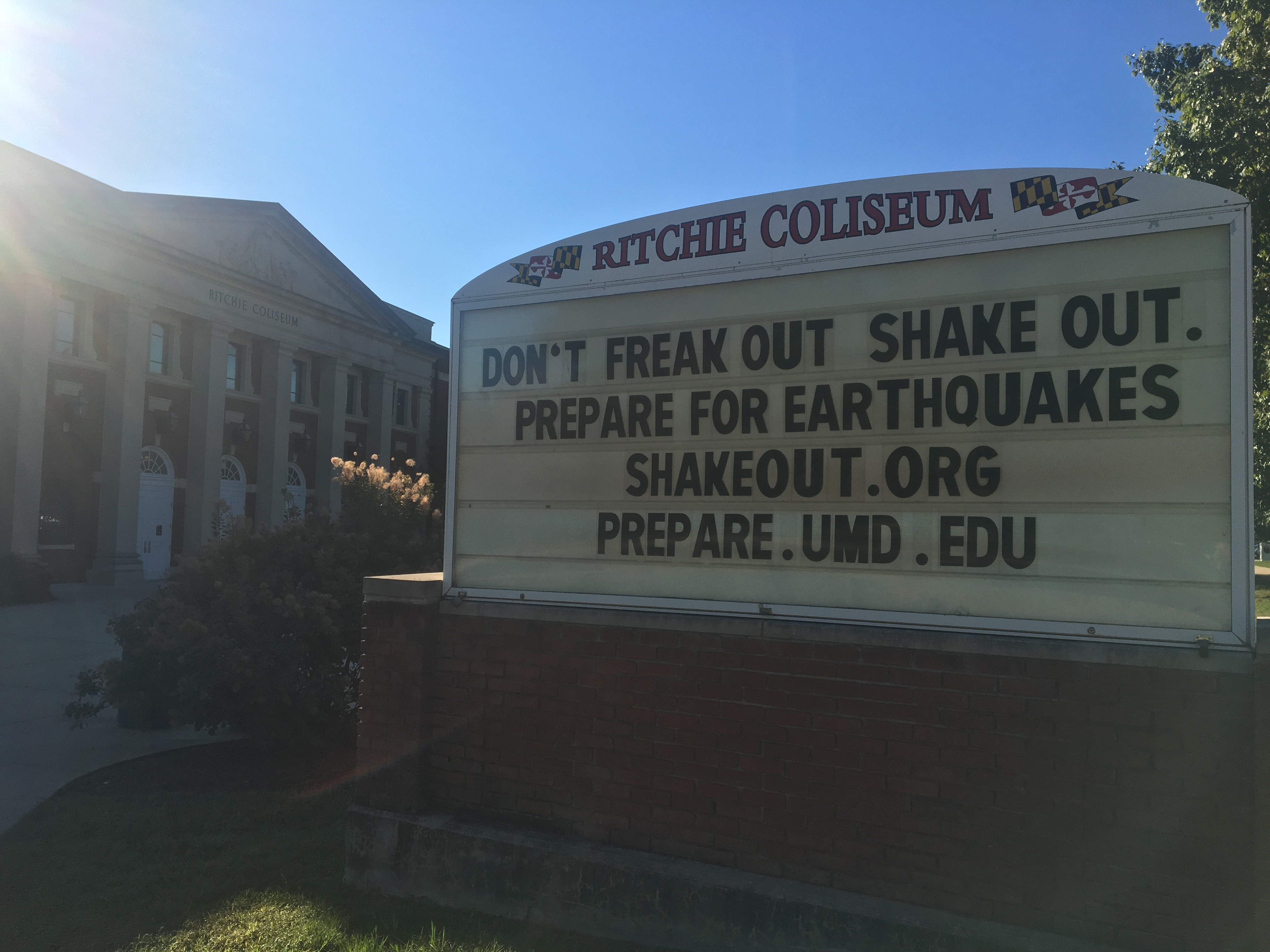By Katherine Brzozowski
For The Diamondback
At about 9:05 a.m. Thursday, the University of Maryland Police Department sent an alert to the campus community encouraging participation in a global earthquake awareness and safety drill known as the “Great Shakeout.”
Nationwide drills began at 10:19 a.m., asking participants to drop to the ground, take cover and hold on as practice for earthquake protective actions. Schools, local communities, businesses and other organizations all participated.
In the notification Thursday morning, University Police addressed the 5.8-magnitude earthquake centered in Mineral, Virginia, that shook this university’s campus in August 2011. Police said this event took the community by surprise and serves as “a stark reminder that many areas within our nation are vulnerable to these unexpected events.”
This university’s Office of Emergency Management organized the Shakeout drill for the fourth consecutive year to create awareness of how to protect oneself in the event of an earthquake, said Jessica Jennings, a university spokeswoman. OEM also worked closely with University Police to inform the campus community on the event.
“You should get as low to the ground as possible and use your arms to protect your head from falling debris,” Jennings advised.
This year the university joined more than 3.3 million participating colleges and universities. This university represents about 50,000 of the 21 million people who registered for the event, according to the Great Shakeout website.
Maryland’s Emergency Management Agency also helped coordinate the event for the southeast region, with almost 189,000 Maryland participants including schools, businesses and government officials at the local, state and federal level.
When freshman Maiya Spell opened the Shakeout alert this morning, she said she was initially confused because earthquakes in Maryland are so rare. But the public health science major said she remembered being at her grandma’s home in Baltimore when the 2011 earthquake hit.
“Initially, I thought my sister was in her room dancing, so I started yelling at her to sit down,” Spell said. “Then I realized it was an earthquake.”
Although she did not participate in the drill, Spell said she thinks it’s important the information was sent out.
Robert Dekeyser, a professor in this university’s Second Language Acquisition program, said he went to graduate school in California, where he experienced a number of earthquakes.
“The very first reaction is, ‘Oh, it’s people moving furniture, or it’s a truck going by or something,'” Dekeyser said. “And the quicker you realize it’s an earthquake, the quicker you can hide under your desk.”



